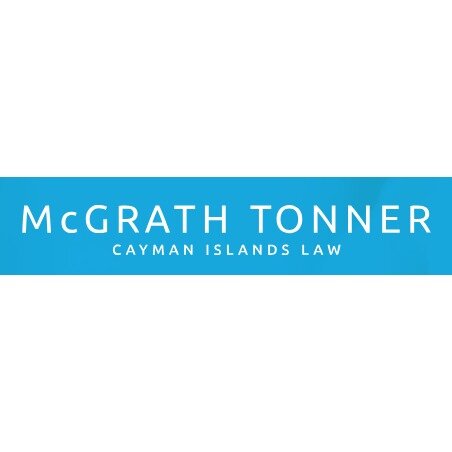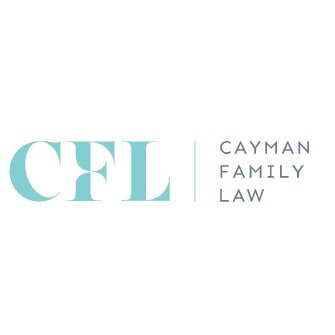Best Trusts Lawyers in George Town
Share your needs with us, get contacted by law firms.
Free. Takes 2 min.
List of the best lawyers in George Town, Cayman Islands
About Trusts Law in George Town, Cayman Islands:
Trusts are a common legal arrangement in George Town, Cayman Islands, where one party (the settlor) transfers assets to another party (the trustee) to hold and manage for the benefit of third parties (the beneficiaries). Trusts are often used for estate planning, asset protection, and charitable purposes.
Why You May Need a Lawyer:
You may need a lawyer in George Town, Cayman Islands to assist you with creating a trust, interpreting trust documents, resolving disputes regarding trusts, or ensuring compliance with local trust laws. A lawyer can provide valuable legal advice and guidance to protect your interests and ensure the successful administration of a trust.
Local Laws Overview:
In George Town, Cayman Islands, the Trusts Law governs the creation and administration of trusts. Key aspects of local trust laws include requirements for trust formation, trustee duties, beneficiary rights, trust registration, and reporting obligations. It is important to understand these laws to ensure proper compliance and avoid legal issues.
Frequently Asked Questions:
Q: What is a trust?
A trust is a legal arrangement where one party (the settlor) transfers assets to another party (the trustee) to hold and manage for the benefit of third parties (the beneficiaries).
Q: What are the benefits of creating a trust?
Creating a trust can help with estate planning, asset protection, charitable giving, and managing family wealth for future generations.
Q: Who can be a trustee of a trust in George Town, Cayman Islands?
A trustee can be an individual or a corporate entity and must act in the best interests of the beneficiaries.
Q: How can a lawyer help with trusts in George Town, Cayman Islands?
A lawyer can assist with creating trust documents, interpreting trust provisions, resolving disputes, ensuring compliance with local laws, and providing legal advice on trust matters.
Q: Are trusts confidential in George Town, Cayman Islands?
Trusts in George Town, Cayman Islands may be subject to registration requirements and reporting obligations, but some information may be kept confidential.
Q: Can a trust be challenged in court?
A trust can be challenged in court if there are concerns about the validity of the trust, breaches of trustee duties, or disputes among beneficiaries.
Q: What are the tax implications of trusts in George Town, Cayman Islands?
Trusts in George Town, Cayman Islands may have tax advantages, but it is important to seek advice from a tax professional to understand the specific tax implications of a trust.
Q: Can a trust be revoked or amended?
Depending on the provisions of the trust documents and local laws, a trust may be revocable or irrevocable, and amendments may be allowed under certain circumstances.
Q: How long does it take to create a trust in George Town, Cayman Islands?
The timeline for creating a trust can vary depending on the complexity of the trust structure, but a lawyer can help expedite the process and ensure all legal requirements are met.
Q: What happens if a trustee breaches their duties?
If a trustee breaches their duties, beneficiaries may have legal recourse to hold the trustee accountable and seek appropriate remedies through court action.
Additional Resources:
For more information on trusts in George Town, Cayman Islands, you may consider consulting the Cayman Islands Monetary Authority (CIMA) or the Cayman Islands Law Society. These organizations can provide helpful resources and guidance on trust matters.
Next Steps:
If you need legal assistance with trusts in George Town, Cayman Islands, it is advisable to consult with a qualified lawyer who specializes in trust law. A lawyer can provide personalized advice and support to help you navigate the complexities of trust creation and administration.
Lawzana helps you find the best lawyers and law firms in George Town through a curated and pre-screened list of qualified legal professionals. Our platform offers rankings and detailed profiles of attorneys and law firms, allowing you to compare based on practice areas, including Trusts, experience, and client feedback.
Each profile includes a description of the firm's areas of practice, client reviews, team members and partners, year of establishment, spoken languages, office locations, contact information, social media presence, and any published articles or resources. Most firms on our platform speak English and are experienced in both local and international legal matters.
Get a quote from top-rated law firms in George Town, Cayman Islands — quickly, securely, and without unnecessary hassle.
Disclaimer:
The information provided on this page is for general informational purposes only and does not constitute legal advice. While we strive to ensure the accuracy and relevance of the content, legal information may change over time, and interpretations of the law can vary. You should always consult with a qualified legal professional for advice specific to your situation.
We disclaim all liability for actions taken or not taken based on the content of this page. If you believe any information is incorrect or outdated, please contact us, and we will review and update it where appropriate.
















